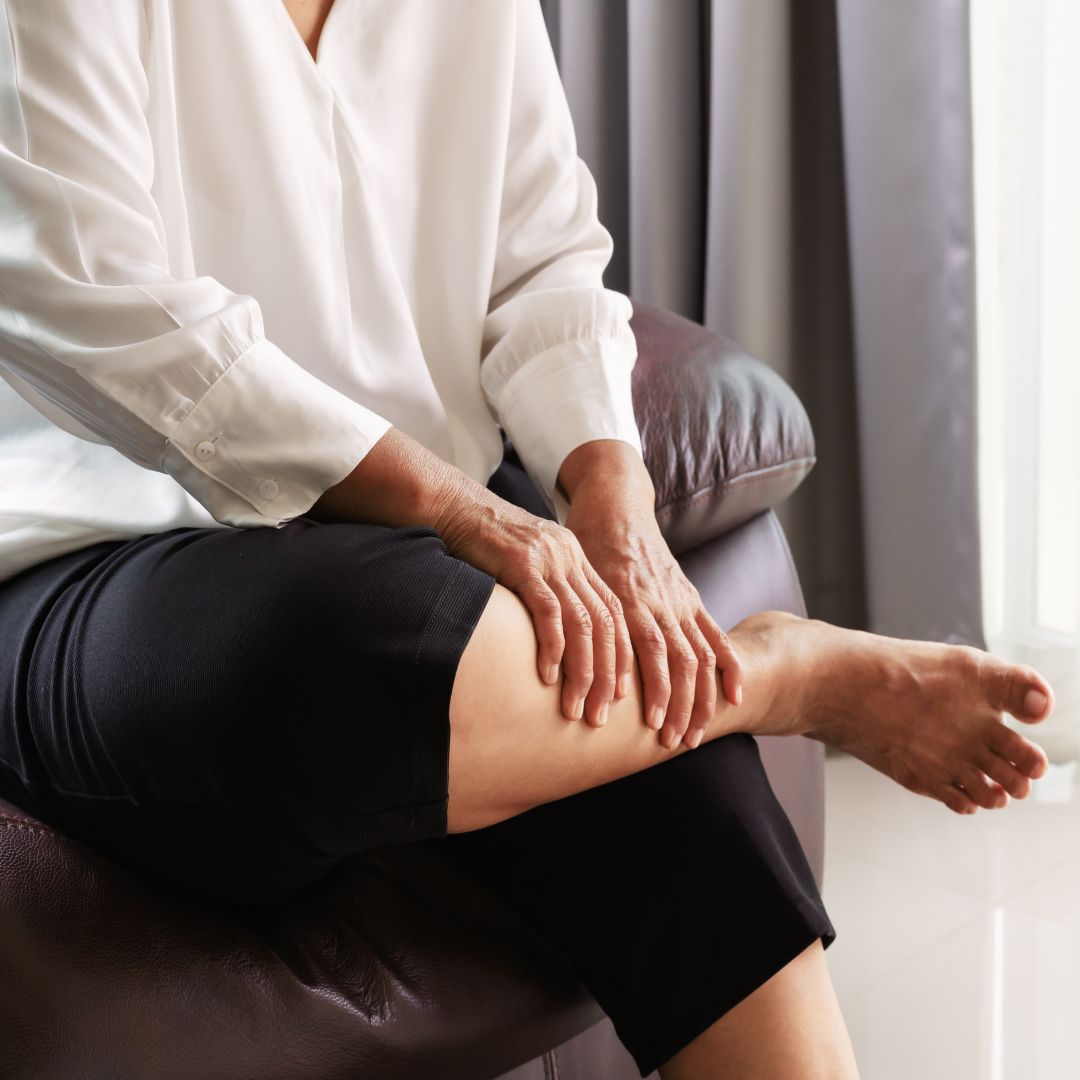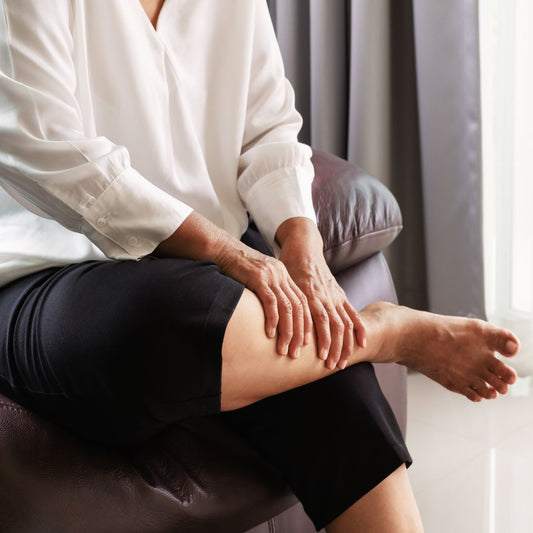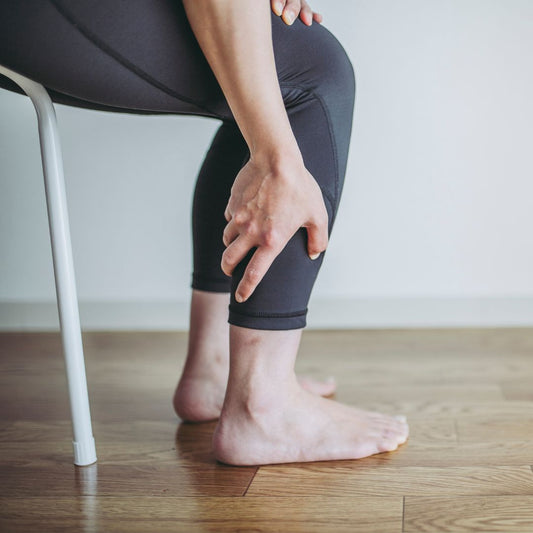Picture this. It’s the middle of the night. You’re nice and cozy and feel the need to stretch out your body. As you flex your feet, you are met with an agonizing pain in your calf that is now throbbing. This is what we like to call a good old fashioned leg cramp. So, what causes leg cramps to randomly take hold onto our muscles? In this blog post, we will dive into everything there is to know about “Understanding Leg Cramps.”
What Causes Leg Cramps?
There are many reasons and factors that can play into your leg cramping. Many times, it’s attributed to lack of fluids in the body, and when you are dehydrated, it directly affects your muscles and can cause cramps. Leg cramps can also occur when your leg muscles have been overused or strained during exercise. If you suffer from a mineral deficiency, such as low levels of potassium, calcium, or magnesium, it can contribute to muscle cramping. Lastly, medical conditions such as pregnancy, diabetes, kidney disease and thyroid disorders can all contribute to leg cramps.
Common symptoms of leg cramps include:
- Sudden cramping that involves intense pain in the muscles.
- Visible contraction that feels like your leg muscles is clenched and tightened into a knot.
- Severe pain that is someone times unbearable.
- Leg cramps can last a few seconds to a few minutes and the pain from them may last for hours.
How To Differentiate Between Various Types of Leg Cramps
As we discussed above, cramps can come on sudden, and have various associations with the types of leg cramps. Those include:
Nocturnal Leg Cramps: When leg cramps occur at night and often wake individuals from their sleep, they’re called nocturnal leg cramps. They include leg aches at night and cramps in the calf muscle.
Charley Horse: A "charley horse" otherwise known as a painful muscle cramp or leg spasm, typically occurs in the leg, often in the calf muscles. This cramping can cause severe calf pain that lasts for hours.
Exercise Induced Leg Cramps: Strenuous physical activity causes these types of cramps and are common due to dehydration and electrolyte imbalances.
Rest Cramps: When a person sits for prolonged periods of time, they may experience rest cramps.
How To Prevent Leg Cramps
Leg cramps are uncomfortable so it’s reasonable to want to put in effort to prevent them from happening. The best ways to prevent leg cramps includes:
- Staying Hydrated: Maintaining your electrolyte balance by drinking plenty of water daily.
- Maintaining a Balanced Diet: Eating foods high in potassium, calcium and magnesium can prevent cramping.
- Stretching and warm up exercises: Regular stretching can prevent nocturnal cramping and warm up routines can waken your muscles and reduce the risk of cramps.
Other ways to prevent leg cramps may come in the form of adjusting your lifestyle. By incorporating more exercise and physical activity into your day-to-day, you will improve your overall muscle tone and circulation which helps prevent muscle strain. Additional adjustments such as supportive footwear can help if you’re on your feet for lengthy periods of time.
Home Remedies for Leg Cramps
Pesky leg cramps can remain painful up to hours after the initial cramping, so it’s important to find remedies at home that help alleviate the pain. Those may include:
Epsom Salt Bath: Soaking in a warm bath with Epsom salts helps to relax muscles and replenish magnesium levels.
Mineral supplements: Supplements like potassium, magnesium and calcium can help with cramping.
Nighttime Adjustments: If you find that your leg muscle cramps at night, try and keep your toes pointed upward while sleeping to prevent the calf from contracting or use a pillow to support your feet in a neutral position.
Over-the-Counter Pain Relief: Non-prescription pain relievers such as ibuprofen or acetaminophen can help with muscle cramping.
Natural Relief: If you’re looking for a natural option, try our Muscle Relief roller-ball, which has analgesic and anti-inflammatory properties. It helps provide fast relief from strains, muscle aches, and alleviates stiffness and swelling.
By understanding the causes, symptoms, and effective management strategies for leg cramps, you can take proactive steps to alleviate discomfort and enhance your overall well-being.




